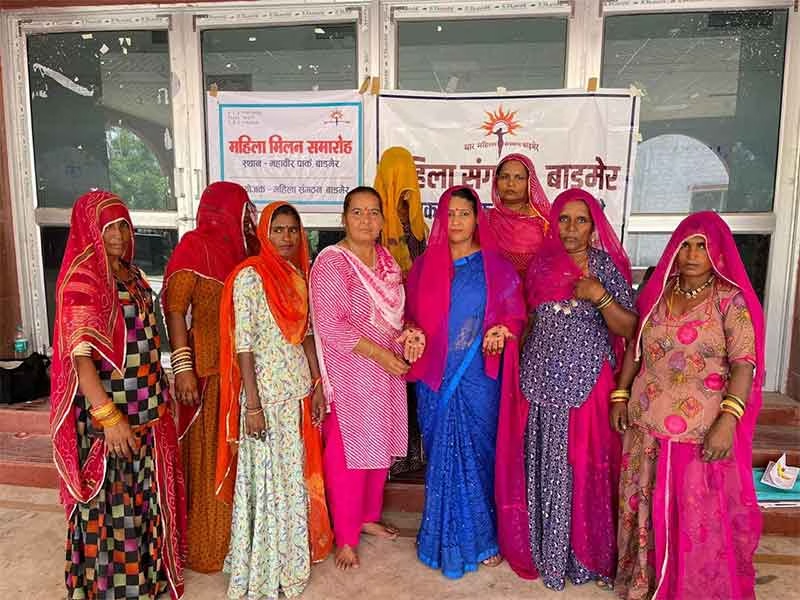
Introduction
Watching Mrs. with my family was an experience I had not quite anticipated. As the credits rolled, I was left with many thoughts, but none of them were about what most critics had written. The film’s commentary on patriarchy, misogyny, and domestic oppression had already been widely discussed. But what truly struck me was not just what was on-screen, but the conversations it ignited in my own home.
The film, a Hindi adaptation of the Malayalam movie The Great Indian Kitchen, follows Richa (played by Sanya Malhotra), a young woman with dreams and ambitions, who finds herself trapped in the suffocating monotony of domesticity after her arranged marriage to Diwakar (Nishant Dahiya). The plot unfolds through the rhythms of her daily chores—cooking, cleaning, serving, repeating—until her silent frustration reaches a breaking point. The kitchen, in this film, is not just a place where food is prepared. It is a metaphor, a prison, a stage where unspoken power dynamics play out in every spilled drop of oil, every unwashed plate, every unacknowledged act of labor.
Much of the discourse surrounding Mrs. has focused on how the film exposes the invisible labor of women. But what intrigued me most was the generational response to it, especially from older women. Across social media and in personal conversations, I noticed a pattern: older women, many of whom had spent their lives in kitchens just like Richa’s, were often unsympathetic to her struggles. “She only has to cook for two people,” I heard one relative say. “In our time, we cooked for ten, sometimes twenty. And we never complained.”
This wasn’t an isolated reaction. Many women from the older generation—mothers, aunts, grandmothers—expressed similar sentiments. For them, Richa’s struggle seemed exaggerated, even indulgent. The exhaustion, the frustration, the quiet rage she felt—none of it seemed justified in their eyes. They had done the same work, and often much more, without expecting recognition. Why, then, was Richa’s experience being treated as a crisis?
This generational divide in perception is worth unpacking. It is not just about Mrs. or its protagonist—it is about how we, as a society, understand labor, sacrifice, and the idea of what it means to be a woman.
For the older generation, domestic work was not just an expectation—it was a fundamental part of life. There was no question of whether it was exhausting or emotionally draining. It simply was. For women, especially, it was their role, their duty, their identity. Many of them took pride in their ability to manage households efficiently, to cook elaborate meals, to keep families running seamlessly. The idea that this work could be oppressive, that it could feel suffocating, is foreign to them because they were never given the space to see it that way.
The act of cooking and managing a home was not viewed as labor in the economic sense. It was an expression of care, of love, of responsibility. When a woman cooked, she was not just preparing meals; she was fulfilling a role society had assigned to her. And because society had never truly acknowledged the difficulty of that role, the women who performed it also internalized its invisibility.
Younger generations, however, have grown up in a different world. They have seen women enter the workforce, gain financial independence, and question gender roles that were once taken for granted. Many young women today view household labor as just that—labor. They do not see it as a natural extension of their identity, but as a task that requires time, energy, and effort. And if something is labor, then it must be valued, shared, and compensated.
This shift in perception is at the heart of the generational divide that Mrs. has highlighted. To an older woman, a daughter-in-law who struggles to cook for two people may seem weak. But to a younger woman, the question is not about capability—it is about fairness. Why is she expected to bear this burden alone? Why is her time in the kitchen seen as inevitable, while her husband’s absence there is unquestioned?
One of the most striking things about the older generation’s response to Mrs. is the way they speak of their own experiences with domestic labor. There is, in their words, a kind of pride in endurance. “We did it without complaining,” they say. “We never made a fuss.” This endurance is seen as a virtue, a sign of strength, an indicator of a woman’s worth.
But what is the cost of this endurance? What does it mean when suffering is not just normalized, but romanticized?
It is worth asking why so many women from previous generations view their struggles as badges of honor. Perhaps it is because acknowledging the injustice of their situation would mean confronting the fact that they were never given a choice. If they were to admit that the work was unfair, that it was exhausting, that they deserved better, then what does that say about the lives they lived?
For many, it is easier to believe that their sacrifices were necessary, that their pain had purpose, that their silence was strength. It is easier to see Richa as weak than to acknowledge that they, too, should have been allowed to say, this is too much.
In Mrs., the kitchen is more than just a physical space. It is the site of silent battles, of unspoken resentments, of generational and gendered expectations. The slow, repetitive shots of Richa cooking, cleaning, scrubbing, serving—these are not just depictions of daily chores. They are the film’s way of showing us the weight of routine, the way mundane tasks become instruments of control.
For the older generation, the kitchen is a place of pride, of tradition, of familial duty. For the younger generation, it is often a place of confinement, of monotony, of unacknowledged labor. Mrs. forces us to ask why these perspectives are so different. Why is the kitchen, for some, a place of power, and for others, a symbol of oppression?
What Mrs. has done is open up a conversation that was long overdue. It has forced families to talk about the work that has, for generations, been taken for granted. It has made women—young and old—reflect on what they have endured, what they have accepted, and what they have questioned.
Perhaps the real question is not whether cooking for two people is difficult. Perhaps the real question is why only some people are expected to do it.
If there is a way to bridge this generational divide, it is through conversation. The older generation must recognize that just because they endured something does not mean it was just. The younger generation must understand that challenging norms does not mean disrespecting those who upheld them. The goal is not to dismiss the past, but to build a future where labor—domestic or otherwise—is valued, shared, and acknowledged.
As I watched Mrs. with my family, I realized that cinema has the power to make us uncomfortable in the best way possible. It forces us to confront the things we take for granted. It makes us see the invisible. And sometimes, it starts the most important conversations around the dinner table.
Subscribe to Our Newsletter
Get the latest CounterCurrents updates delivered straight to your inbox.
Disha is a Ph.D. Scholar & Senior Research Fellow at Dr. K. R. Narayanan Centre for Dalit and Minorities Studies, Jamia Millia Islamia, New Delhi, India (ORCID: https://orcid.org/0009-0006-7124-9438)

















































